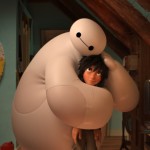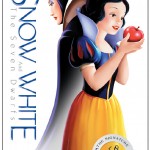I) Scientific Hubris — No Emotional Attachments Allowed
 Dr. William (Bill) Masters and Virginia Johnson justify undertaking–and eventually participating in–their study by claiming it is possible to remain scientifically detached. It should not be a big surprise to us that this proves more difficult than they anticipate. Neither is presented as using this excuse as a willful means of pursuing something for prurient reasons. He is a fertility doctor who genuinely wants to (and tries to) help people. If gaining knowledge in order to do so risks stirring up emotional and spiritual forces that are dormant within him…well, he trusts in his own self-discipline and professionalism to rigorously compartmentalize what is happening in the lab from what is going on in his own life. She already separates sex from attachment (or so she believes), enjoying physical pleasure while clinging fiercely to her independence. If sex in the bedroom doesn’t faze or entrap her, why should sex in the laboratory?
Dr. William (Bill) Masters and Virginia Johnson justify undertaking–and eventually participating in–their study by claiming it is possible to remain scientifically detached. It should not be a big surprise to us that this proves more difficult than they anticipate. Neither is presented as using this excuse as a willful means of pursuing something for prurient reasons. He is a fertility doctor who genuinely wants to (and tries to) help people. If gaining knowledge in order to do so risks stirring up emotional and spiritual forces that are dormant within him…well, he trusts in his own self-discipline and professionalism to rigorously compartmentalize what is happening in the lab from what is going on in his own life. She already separates sex from attachment (or so she believes), enjoying physical pleasure while clinging fiercely to her independence. If sex in the bedroom doesn’t faze or entrap her, why should sex in the laboratory?
But detachment–whether scientific or academic–proves to be a lot more difficult than intellectually smart people anticipate. Anonymous (to each other) participants in the study find out that partners are not interchangeable and that sex is not only physiological. By ignoring the moral implications or contexts of the behavior, the scientists are slow to realize that the correlations between sexual behavior and emotional attachment aren’t merely proscribed by religious people (or institutions) as preconditions for healthy sexuality but also as (perhaps) necessary descriptions of it. In religious terms, sex creates a bond between those who engage in it whether they chose to recognize that attachment or not. It may be possible–through repeated practice–to blunt the power of that attachment, perhaps even to the point of no longer feeling it, but those who enter into a sexual liaison under the assumption that it can be free of attachment simply because authority says so are generally in for a rude reality check.
In a strange sort of way, the book that the series most reminds me of is Stephen J. Gould’s The Mismeasure of Man. I encountered Gould’s history of intelligence testing while an undergraduate and was completely persuaded by his careful presentation of his premise that science is blinded by its cultural embeddedness to its own assumptions and ideologies. The most shocking element of the book, though, was how Gould–a scientist no doubt smarter than I’ll ever be–does a shocking 180 degree turn in the last chapter. There he argues that while science has been plagued by its own prejudices in the past, we have since learn to correct and compensate for those errors (through means such as double blind studies) and, freed from bondage to our own prejudices and assumptions, are thus capable of discovering objective truth. That seemed weak to me. Data always needs to be interpreted. We are, if anything, more prone to confirmation bias in this day and age. Humans–including scientists–too often see what they want to see. In the case of Masters and Johnson, they wanted to see that sex was something they could study in a lab without having their experiments alter their own feelings, behavior, and beliefs. That’s hubris. The show recognizes it as such and shows them paying the price for it.












